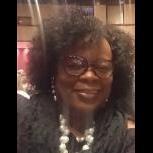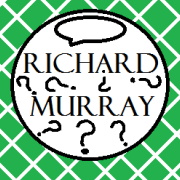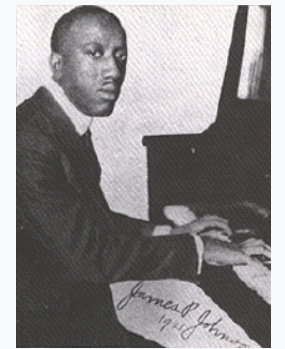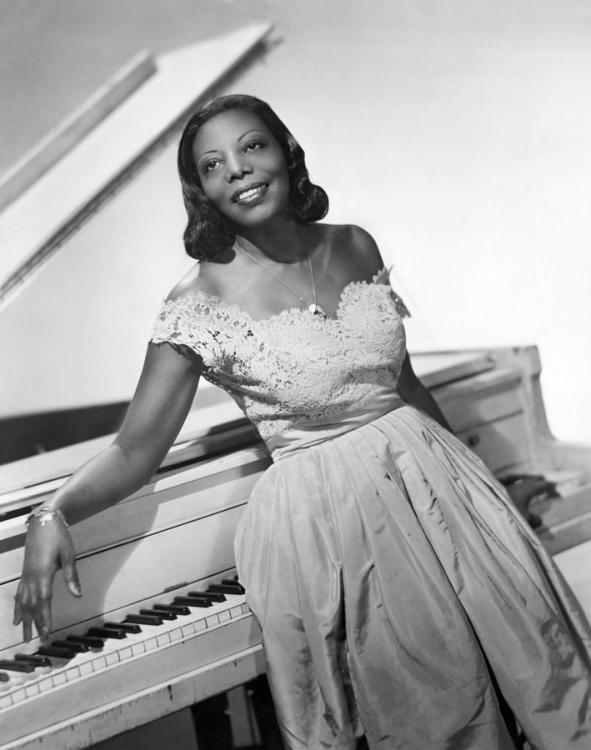-
Posts
4,189 -
Joined
-
Last visited
-
Days Won
121
richardmurray's Achievements
Single Status Update
See all updates by richardmurray
-
Jazz and Classical Met in the 1940s, and We’re Still Catching Up
A pair of new recordings bring holy grail artifacts by the composer-pianists James P. Johnson and Mary Lou Williams into the light.By Seth Colter Walls
Sept. 8, 2023
This September, audiences will at last possess a more dynamic, more elegant — and just plain improved — sense of how New York City’s jazz and classical scenes converged in the 1940s.Was eight decades a galling length of time to have waited? Naturally. But better late than never.
The belated occasion is because of a pair of new recordings. Each one has located and dusted off a holy grail artifact, dating from an era when Black composers with sway in jazz circles dared to pursue hybrid musical styles, all while meeting various forms of resistance or disrespect. Their classical works were discussed as they premiered, yet were rarely programmed twice. Nor were they properly documented on recordings.
That last bit of the story is what’s changing, starting this week. One CD, out Friday from the Naxos label, brings the world premiere recording of “De Organizer”: a one-act opera on labor politics jointly conceived by the composer-pianist James P. Johnson and the Harlem Renaissance poet Langston Hughes.

James P. Johnson jointly conceived the one-act opera “De Organizer” with Langston Hughes
Mary Lou Williams’s “Zodiac Suite” has long been popular in its jazz-trio form, but its chamber orchestra version had never been properly documented on a studio recording.One week after that, the chamber orchestra version of Mary Lou Williams’s “Zodiac Suite” will enjoy its first-ever studio recording on the Mack Avenue label.
When news releases for both albums hit my inbox nearly simultaneously, toward the end of the summer, my mouth hung open. Both Johnson and Williams were era-defining composers and improvising pianists: Johnson was an exemplar of Harlem stride and the author of the “Charleston”; Williams matured as a composer and player in the crucible of Kansas City’s boogie-woogie style, before arranging for Ellington and tutoring lions of bebop in New York. Why shouldn’t we have access to their ambitious classical works?
Johnson and Hughes’s “De Organizer” had its lone stretch onstage in 1940, at a convention hosted by the International Ladies’ Garment Workers’ Union. And then Johnson’s score promptly disappeared from public view until it was (mostly) recovered, and a restoration by the scholar-pianist James Dapogny premiered in 2002.
After discovering a copy of every sung note in the opera, Dapogny was also given details on the original orchestration by Johnson’s foundation. The new Naxos CD documents the scholar’s edition, recorded by the conductor Kenneth Kiesler and the University of Michigan Opera Theater and Symphony Orchestra in a 2006 performance. (It also offers excerpts from another Johnson opera, “The Dreamy Kid,” based on the Eugene O’Neill play.)
In “Organizer,” the result is a chameleonic work that melds the vibrato of operatic singing with select stylistic attributes of Black spirituals and the blues; its orchestral heft also has a place for touches of the Harlem stride style that Johnson pioneered. (Dapogny is the pianist in this performance.)
The libretto — previously published in Susan Duffy’s book “The Political Plays of Langston Hughes” — can seem sleek to a point of slightness, on the page. But Hughes’s narrative and rhetorical designs hit in a new way when heard in tandem with Johnson’s ebullient, inventive music; his plot feeds Johnson’s capaciousness as a composer, making space for choral meditations and grand solo entrances, even as it presses forward with clear narrative drive and a sense of high spirits.
When a local overseer crashes a meeting of Black sharecroppers to discourage their unionizing, Hughes’s text indicates that the rhythm involved should evoke the song “Mamma Don’t ’Low No Piano Playin’ Here” (a folk tune that has enjoyed a great number of variations over the decades) — signaling that one authority’s wishes will not present a major obstacle for the community that can sing out together.
With an all-Black creative team pushing for a progressive vision of labor solidarity, perhaps it’s no great mystery as to why the classical industry of the time did not promote the opera (or invest in its preservation). However the erasure of “Organizer” came about, Dapogny’s devotion to his restoration of the score, right up until his death in 2019, amounts to its own kind of artistic activism.
A similar interventionist spirit was required when producing a new take of Williams’s “Zodiac Suite.” With its 12 movements — one for each astrological sign — the composer created affectionate portraits of admired artists and friends. While that composition has long been popular in its jazz-trio form, Williams was eager to adapt it for both chamber orchestra and a full orchestra. A document exists of the chamber version, capturing a live 1945 performance at Town Hall in New York, though that take’s lack of proper rehearsal time is audible in the final, muddled result.
So her chamber version was also in need of a contemporary champion. It has found one in Aaron Diehl — a pianist widely admired in both jazz and classical circles.
During the lockdown portion of the pandemic, he was joined by the New York Philharmonic as he played excerpts from the chamber “Zodiac” for the orchestra’s streaming channel. Yet on the new Mack Avenue recording, he’s joined not by the Philharmonic, but by the adventurous chamber orchestra the Knights, which is staffed by some of the brightest younger players on the classical scene. And they’ve clearly invested time in all 12 parts of Williams’s suite.
The Knights as a whole balance lightness of touch with a forward sense of swing in the opening “Aries,” and in the regal flourishes that Williams deployed in movements like “Taurus” and “Leo.” Strings in particular seem to revel in the bluesy sliding tones of “Cancer,” which also includes the guest tenor saxophonist Nicole Glover’s elegant soloing (in a spot originally conceived by Williams for Ben Webster).The Knights flutist Alex Sopp emerges as a key figure as the suite progresses — including when she soars dreamily atop the rhythmic patterns of “Scorpio” for significant, exposed stretches. Diehl, the bassist David Wong and the drummer Aaron Kimmel are a consistent delight — as when providing authoritative piano-trio swing during “Virgo.”
In an interview, Diehl lavished praise on the chamber orchestra. “It’s hard enough — even in a small jazz ensemble, five or six people — to agree on the eighth-note triplet,” he said. “When you have multiples of that — 25 or 30 people — that always makes it more difficult. It’s always about negotiating how you’re going to play, how you’re going to phrase.”
Diehl credited the Knights’ artistic director and conductor, Eric Jacobsen, for his ability to “translate” the jazz-ensemble aspects of the “Zodiac Suite” to his full chamber orchestra.
In a separate interview, Kiesler, the conductor of “De Organizer,” described how the Michigan performance of Johnson’s operatic music required a similar sense of open investigation regarding orchestral swing. He said he learned from Dapogny that, when it comes to swing, “the style is not always about the rhythm, but the weight — it’s about emphasis in places that we might not have it in so-called ‘classical’ music.”
The interpretive insights on both new recordings are so strong, they stand alongside other recent triumphs in the American repertoire. The just-right balance of orchestral weight and lithe swing is also in evidence in a recent recording of Wynton Marsalis’s Symphony No. 4. And the engaged political elements of Johnson and Hughes’s one-act opera have a connection with the contemporary operas of the saxophonist and composer Anthony Braxton, whose “Trillium X” premiered in Prague this summer.
So: More evidence of the true breadth and nature of the American repertoire is steadily coming into view. What major orchestras and opera companies do with that information may be up to their donor bases. But in the meantime, both of these new recordings are capable of dishing out American art music ambrosia — and to a broad community of listeners.
URL
https://www.nytimes.com/2023/09/08/arts/music/james-p-johnson-mary-lou-williams.html
MY THOUGHTS
I saved and shared Mary Lou Williams Zodiac suite before, i am glad it is getting more praise. . The following is a youtube upload with time index in text. But I do find it odd how black musicians who have made millions never think to bring into the light of their fanbases old black music. It can be done, in one way or another.
TIME INDEX
1. Aries 0:00
2. Taurus 1:52
3. Gemini 4:29
4. Cancer 6:44
5. Leo 9:21
6. Virgo 11:08
7. Libra 13:40
8. Scorpio 15:53
9. Sagittarius 18:59
10. Capricorn 20:54
11. Aquarius 23:37
12. Pisces 27:20
13. Aries 29:57
14. Cancer 32:28
15. Virgo 34:59
16. Scorpio 37:48
17. Aquarius 41:02








.thumb.jpg.ed52910791d00308abb8c218695bec88.jpg)




